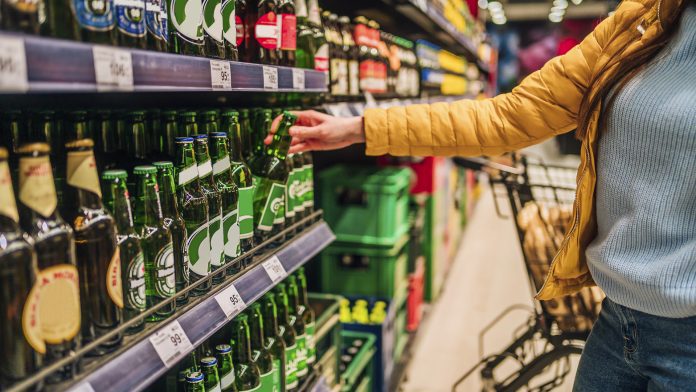
Research from the University of Galway and McMaster University has found that moderate and high alcohol consumption increases the risk of acute stroke.
The researchers examined the alcohol consumption of almost 26,000 people worldwide. A quarter of those people were current drinkers; the remaining two-thirds were teetotal.
The study analysed people from a range of ethnic backgrounds, across 27 countries, including Ireland and the UK. No association was found between low-level alcohol consumption and the risk of acute stroke.
The findings have been published in Neurology.
Acute stroke is a leading cause of death globally
“Each year, approximately 7,500 Irish people have a stroke, and around 2,000 of these people die. An estimated 30,000 people in Ireland are living with disabilities as a result of stroke,” said Professor Martin O’Donnell, who led the study alongside Professor Salim Yusuf from the Population Health Research Institute at McMaster University, Canada.
“The study was designed to look at the key risk factors for stroke in different regions of the world, to inform approaches to population-level prevention. In this paper, we focused on the role of alcohol intake and stroke risk,” added Professor O’Donnell.
It has been well-established through previous research that alcohol intake increases the risk of acute stroke, however, there has been uncertainty about whether low or moderate levels of drinking increased the risk. The researchers also wanted to understand if the association between alcohol intake and stroke varied by region and population.
“Overall, our findings indicate that high and moderate intake of alcohol was associated with increased odds of stroke, while we found no convincing link between low intake and stroke,” said Professor Andrew Smyth, Professor of Clinical Epidemiology at the University of Galway.
Different alcohol habits alter levels of risk
The researchers emphasised that the effects of alcohol intake are complex and are intertwined with socioeconomic factors such as education, smoking status, diet, and physical activity. The researchers were especially interested in the impact of ‘binge drinking’, as well as the effects of different types of alcohol.
The research team established that the adverse risk of having seven drinks one day per week was likely to be greater than having one drink each day of the week.
They found that beer consumption caused a 21% increase in the risk of acute stroke; this was significantly higher (73%) for intracerebral haemorrhage. Conversely, predominant wine consumption did not increase the risk of stroke.
The researchers also found that current drinkers had a 14% increase in risk of stroke, and a 50% increase in the risk of intracerebral haemorrhage (stroke due to bleeding), but no increase in the risk of ischaemic stroke (stroke due to clots).
They found that heavy episodic or ‘binge drinking’ – defined as more than 5 drinks in one day at least once a month – led to a 39% increase in all strokes; a 29% increase in ischaemic stroke; and 76% increase in intracerebral haemorrhage.
“Worldwide there are differences in alcohol intake by gender, age, social class, education and occupation, as well as differences in the type of alcohol consumed and the pattern of drinking,” explained Professor Michelle Canavan, Established Professor of Older Adult Health, and Consultant Geriatrician.
“Current drinking was linked with reduced risk of stroke in Western Europe and North America, but increased risk of stroke in India and South America. The greatest increases in stroke risk were seen for binge drinkers in South America, Africa, and India and with those who have high levels of alcohol consumption in China and south-east Asia.
“Therefore, targeted interventions to manage high intake at the population level may help reduce stroke risk, particularly for males in these regions who are more likely to binge drink,” she concluded.
























